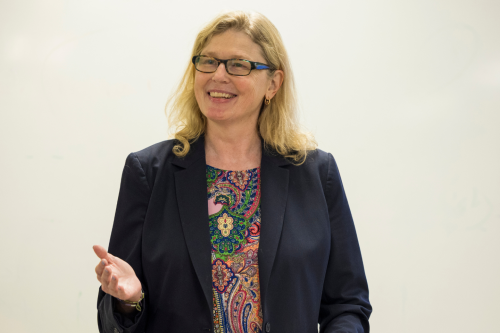At Stonehill College, A Small Gift Yields Big Rewards
Francis Dillon will tell you that the huge expenses associated with college aren’t necessarily what makes it hard for students of limited means to get through school. Often, it’s relatively small stuff that can have a huge impact.
Formally, Dillon is a vice president for advancement of Stonehill College. But for years he has been the person those on campus turn to when a student can’t afford a new laptop, or a trip home during a vacation break, or to apply to graduate school — the kinds of expenses that many of their peers take for granted.
He fell into this role accidentally. “It was part of our mission that we wanted to increase the number of students whose families are economically challenged,” he said. “But then something else happened.”
That “something else” was discovering just how thin the line can be between success and failure for some students.
Stonehill is not unique in this regard; in fact, it’s average. Tuition, room, and board at the private 2,500-student school in Easton runs about $55,000 a year. That’s not cheap, but it is often defrayed by scholarships and other financial aid. The dealbreakers are much smaller.
“In most cases the financial difficulty doesn’t amount to a huge amount of money,” Dillon said. “But to them it’s an insurmountable difficulty. We have a lot invested in these students. We don’t want to lose them over a relatively trivial amount of money, and that happens.”
Two years ago, a benefactor surprised Stonehill with a gift of $117,000 that came with no restrictions. Stonehill officials, including Dillon, had a novel idea for it. They decided to create a small, permanent fund to take care of the little student crises they had been quietly addressing piecemeal.
The need for such a program reflects the challenge of maintaining an economically diverse student body. It’s an issue that isn’t unique to Stonehill, Dillon says.
When he thinks about students whose college careers may have been saved by emergency infusions of cash, Dillon can rattle off examples. But one of his favorites is a current Stonehill accounting student named Juan Lopez.
Lopez grew up in a tough area on the South Side of Chicago called Little Village. He says when he was about 13, some gang members in his math class noticed his facility with numbers and tried to recruit him as a bookkeeper. He avoided getting involved, but school became a constant source of anxiety.
A teacher encouraged him to enroll in a parochial school across town, from which he graduated as the valedictorian. From there, he was recruited to Stonehill.
It would be nice to say that was the end of the story, but poverty has made college a challenge too, despite his part-time job as part of Stonehill’s maintenance crew. At one point, he faced an unexpected crisis. His father had lost his job, and with it his family’s health insurance. Stonehill requires all its students to have health insurance.
Enter Dillon, with a check for the required coverage. Lopez freely admits that it wasn’t the only time he has needed help.
“If it wasn’t for this fund, I probably would [have been] out of here by the end of my freshman year,” Lopez told me. “I would be working at a factory or a landscaping job, going to community college, and hoping to transfer my credits.”
Instead, he is a junior with a 3.6 grade-point average. He’s been hired as a summer intern at a major Chicago accounting firm. By chance, one of the partners who hired him grew up near his neighborhood. They bonded immediately.
Instead of being driven out of college by an inability to keep up financially, Lopez is looking forward to a professional future.
He said he is also looking forward to being a mentor to other young people, his way of repaying the small gifts that have changed his life.


